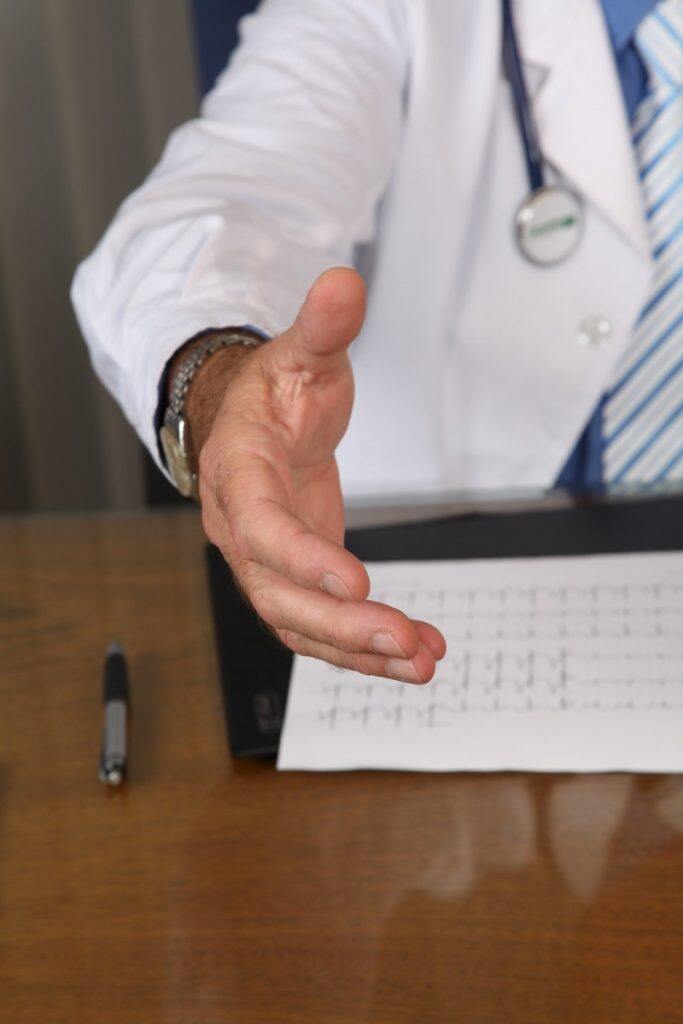More than half (58%) of diagnostic errors in general practice happen during GP consultations with patients, according to new research which investigated this across general practice in England for the first time.


The research, ‘Incidence, origins and avoidable harm of missed opportunities in diagnosis: longitudinal patient record review in 21 English general practices’*, was published in the BMJ Quality & Safety today. It was funded by the National Institute for Health Research Greater Manchester Patient Safety Translational Research Centre (NIHR GM PSTRC). The Centre is a partnership between The University of Manchester and Salford Royal NHS Foundation Trust.
The GP records of 2100 randomly selected patients were reviewed. Clinician reviewers identified missed opportunities to make a correct or timely diagnosis based on the evidence available (called Missed Diagnostic Opportunities, or MDOs). The number of errors, how they occurred and the consequences these had for the patients involved were investigated.
Examples of errors that happened in a consultation with a GP were problems with ordering or correctly understanding a diagnostic test.
Dr Sudeh Cheraghi-Sohi, Research Fellow at the NIHR GM PSTRC who led the study, said: “Understanding diagnostic errors in general practice is vital when looking at how to make healthcare safer for patients as it is often the starting point of a patient’s journey within the healthcare system and can have serious implications for how a disease is treated. While it’s important to point out that we found multiple reasons for errors, including issues between GPs and hospitals, the majority happened during a patient’s consultation with their GP and this is where efforts should be targeted to reduce these errors. More than 300 million consultations take place every year in general practice. This means that there are several million patients potentially at risk of avoidable harm from a mis-diagnosis each year.”
Other reasons for MDOs were:
- The performance and/or the interpretation of a diagnostic test – 25% (e.g. incorrectly interpreting a HbA1c test for diabetes)
- Issues around the follow-up and tracking of diagnostic information – 24% (e.g. tests being requested and not performed)
- Issues around a referral to a specialist – 12%. (e.g. a referral request was made but not acted upon)
- An issue specific to the patient – 6% (e.g. the patient did not attend the appointment with a specialist)
In addition, it is important to note that in 72% of the MDOs identified there were two or more causes.
There were 89 missed diagnoses in the study and the most common were:
- 11 cases involving a disease/condition affecting the genitourinary system (eg. a urine infection)
- 11 cases involving a disease/condition affecting skin
- 9 cases involving a disease/condition affecting the endocrine, nutritional and metabolic systems (e.g. diabetes)
- 8 cases involving diseases affecting the circulatory systems
- 8 cases involving disease affecting the respiratory system
- 8 cases involving a mental health illness
- 5 cases involving tumours of some kind
The research has also identified the size of the problem of missed diagnoses in English general practice for the first time, and found that an MDO occurred in 4.3% of GP consultations. In the majority of cases there is no cause for concern and the chance of an MDO occurring is low. However, when it does happen the research shows that in 40% of cases the harm to patients was assessed as moderate or severe which is equivalent to 6 million consultations per year.
Professor David Reeves, from the University of Manchester and co-author of the paper, said: “GPs do a challenging and demanding job and often see patients with unclear symptoms and complex medical histories. Despite this, our research has shown, they make accurate diagnoses in the vast majority of cases. The occasional mis-diagnosis is not surprising but can have serious long-term consequences for the patient and be devastating for the clinician as well. Finding ways to help GPs avoid diagnostic mistakes is an urgent priority.”
Dr Cheraghi-Sohi, continued: “Our research has revealed that the implications of a misdiagnosis occurring in general practice can be significant. As a result, we are suggesting that new patient safety research is needed to focus on the prevention of avoidable harm due to misdiagnoses. The focus of this should be on improving communication between clinicians and patients in the consultation room.”








































